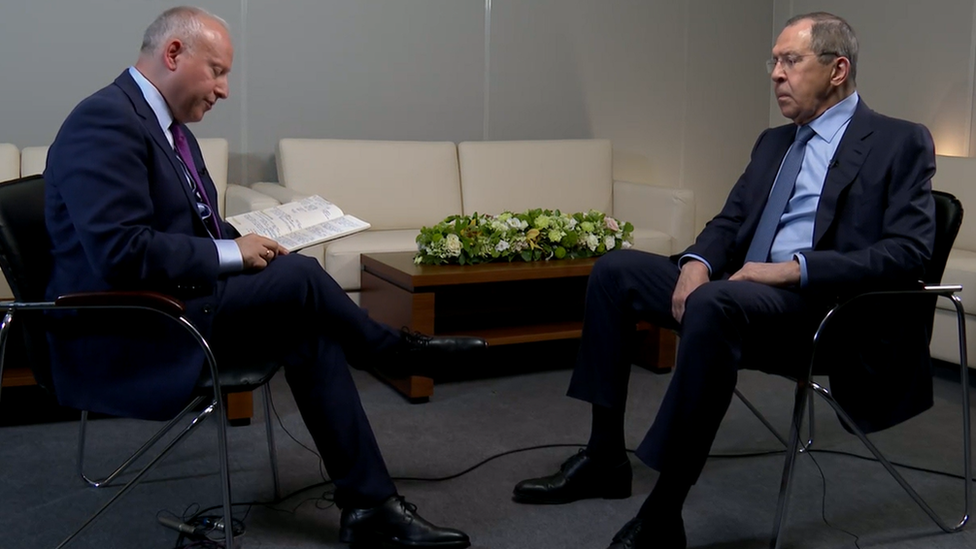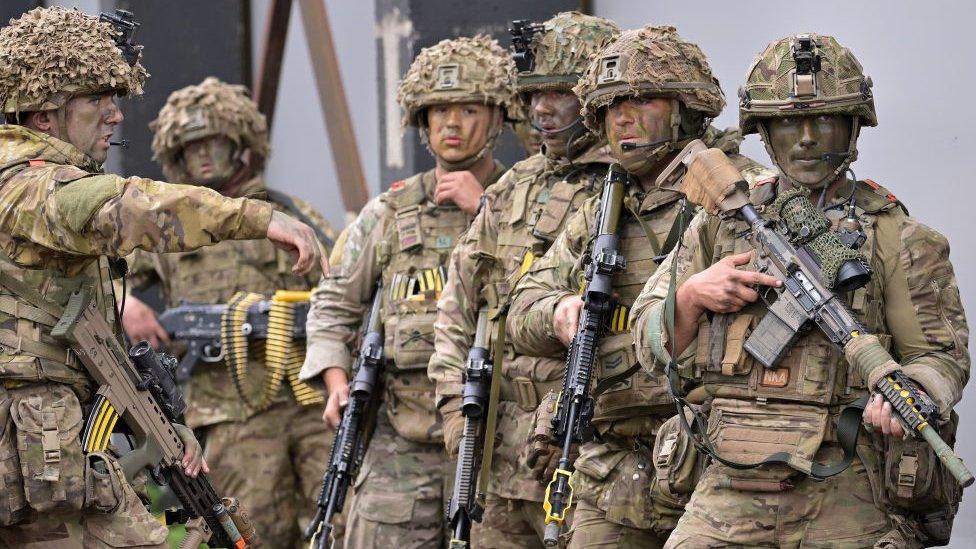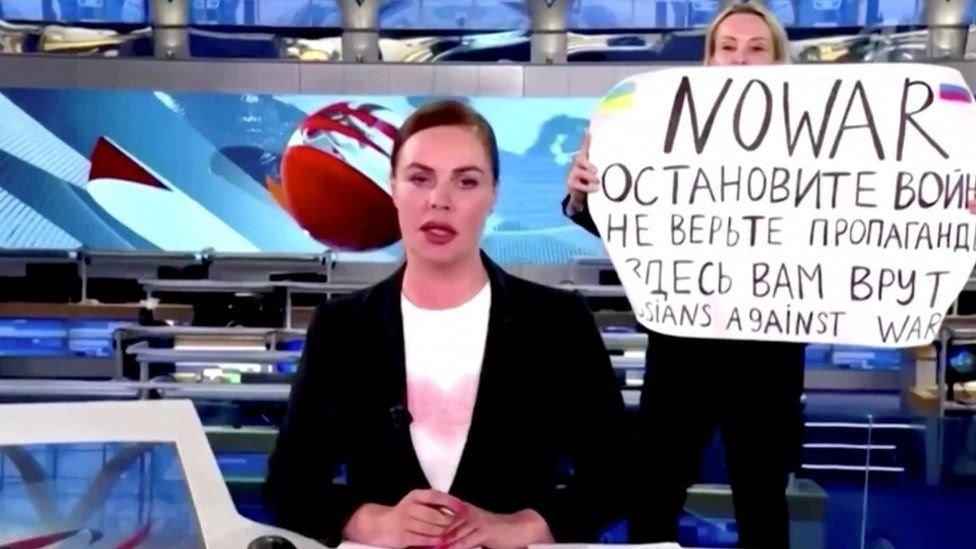Ukraine War: Russian Foreign Minister Sergei Lavrov fact-checked
- Published

Mr Lavrov spoke to the BBC's Russia Editor Steve Rosenberg
Russian Foreign Minister Sergei Lavrov has made several claims about the war in Ukraine in an interview with the BBC.
We've fact-checked some of them.
'Dragging Ukraine into Nato was a criminal act'
Ukraine is not a member of Nato and, although it has expressed a wish to join, there is no timeframe for this.
Mr Lavrov said Russia invaded Ukraine to stop the West "dragging" Ukraine into the military alliance.
If Ukraine were to become a member of Nato, the alliance would be obliged to defend it from attacks by Russia or other adversaries.
Nato hasn't deployed any combat troops to Ukraine, but co-operation has deepened since 2014.
Nato members have supported Ukraine with equipment and training following the annexation of Crimea by Russia and foreign military trainers have had a presence in the country.
In March, Ukraine's President Volodymyr Zelensky said: "It is clear that Ukraine is not a member of Nato; we understand this."

Nato troops have taken part in exercises in Baltic states such as Estonia
Nato has deployed more forces to some member states in eastern Europe in recent years.
It says its deployments in eastern Europe after 2014 - four battle groups in the Baltic states and Poland - amounted to 5,000 troops.
"Before Russia's illegal annexation of Crimea, there were no allied troops in the eastern part of the [Nato] alliance."
It also says that further Nato military activity in eastern Europe has been in response to Russia's own build up near Ukraine, which went on for many weeks before it invaded in late February.
At one point, the Russian forces were estimated to be anything between 100,000 and 190,000 strong.
Watch: Sergei Lavrov speaks exclusively to the BBC about the war Ukraine
'We didn't invade Ukraine, we declared a special military operation'
On 24 February, Russian forces began a full-scale attack on neighbouring Ukraine, targeting locations across the country.
The BBC and other news organisations have consistently described this act as an invasion.
In early March, Russia passed a law under which publishing "false information" about what the Russian army is doing is punishable by up to 15 years in jail.
In practice, this means punishment for reporting anything that challenges the Kremlin's narrative on its campaign in Ukraine.
Media outlets in Russia are banned from calling it a "war" or an "invasion". The required official terminology being a "special military operation".

An anti-war protester who interrupted the news on Russian state TV was arrested and fined
'According to international law, mercenaries are not recognised as combatants'
The laws of war laid out in the Geneva Conventions grant "combatant immunity" to prisoners of war.
Mercenaries (foreign fighters not part of a regular army, hired to undertake military operations) are not covered by this legal protection.
Mr Lavrov was talking about two British men who were sentenced to death by a Russian proxy court in eastern Ukraine, accused of being mercenaries.
Both men have lived in Ukraine since 2018. Their families say they've been long-serving members of the Ukrainian military and therefore should be protected.
Foreign nationals who are members of another country's armed forces have rights as prisoners of war if captured.
